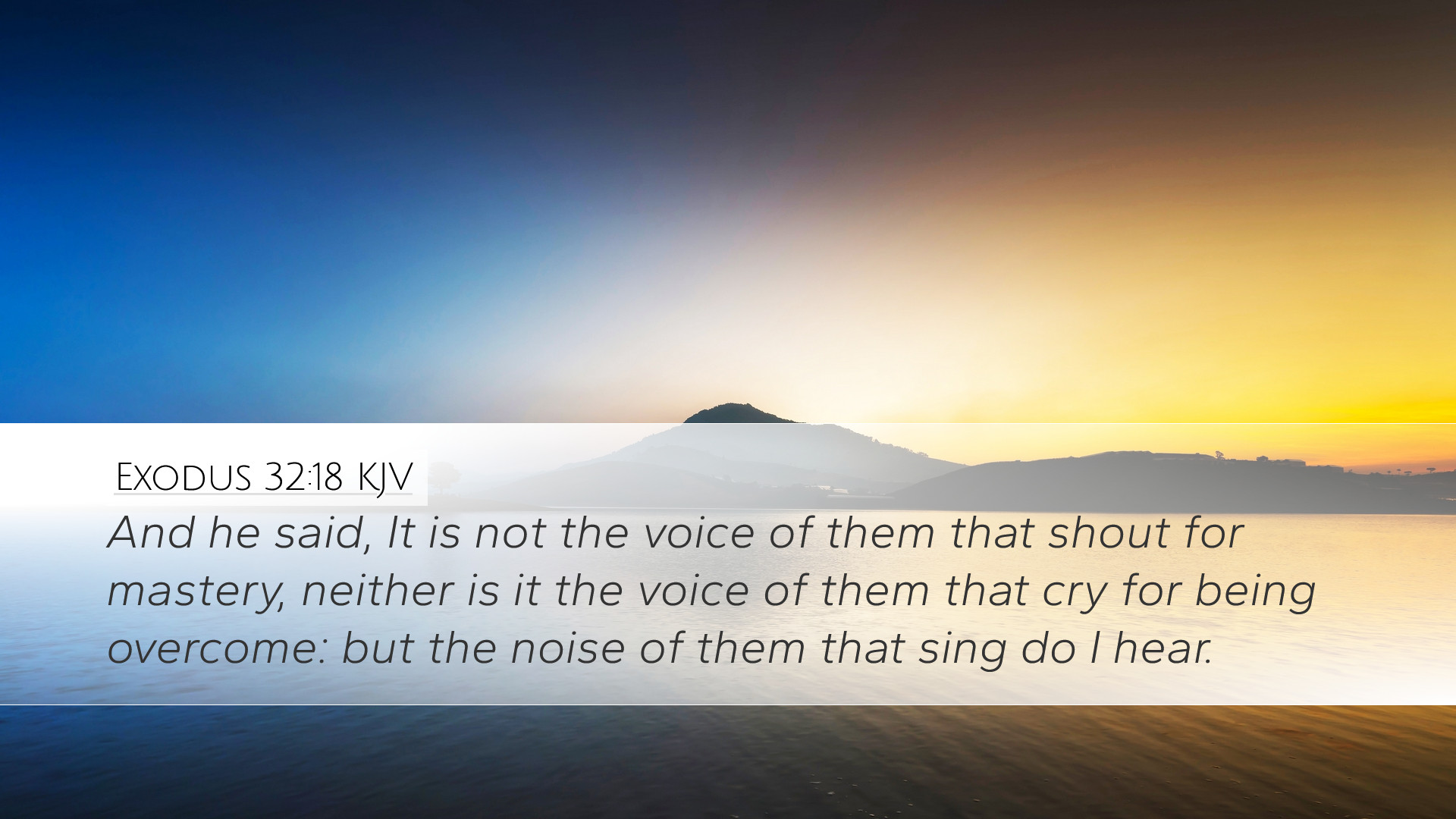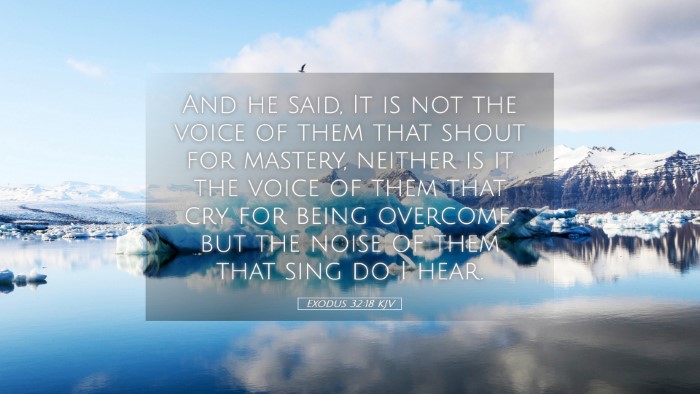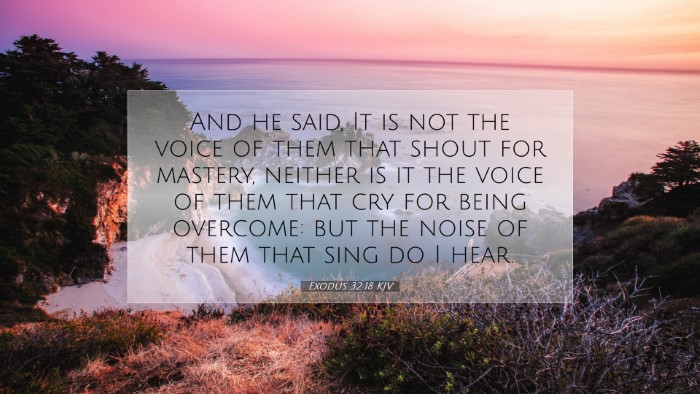Commentary on Exodus 32:18
Context of Exodus 32:18
Exodus 32 narrates a pivotal moment in Israel's history during Moses' ascent to Mount Sinai. While Moses is receiving the Law from God, the people grow restless and demand a god to lead them. They construct a golden calf, leading to severe repercussions. Verse 18 captures a moment where Moses responds to the people’s idolatrous actions with a poignant statement.
Text of Exodus 32:18
"But he said, It is not the voice of them that shout for mastery, neither is it the voice of them that cry for being overcome: but the noise of them that sing do I hear."
Commentary Insights
Historical Context
As Moses descends from the mountain, he is confronted by the sounds of revelry from the Israelite camp. This moment highlights the stark contrast between Moses’ communion with God and the Israelites’ descent into idolatry. Public domain commentaries resonate with this transformative clash, emphasizing the impact of divine revelation versus human corruption.
Moses’ Interpretation
Matthew Henry observes that Moses, with acute discernment, recognizes the sounds not as war cries or cries of distress, but as revelry and celebration. This discernment is essential; it demonstrates Moses’ intimate relationship with God and his spiritual awareness. The sounds of Israel’s celebration embody their disobedience, showcasing how far they have strayed from the covenant established with God.
The Nature of the Noise
- Albert Barnes elaborates on the implications of the 'noise' heard by Moses. The audible expressions of joy reflect a significant turning away from worshiping God to engaging in idolatrous practices. In this loud cacophony, the disorder and chaos signify the spiritual confusion within the camp.
- Moreover, this noise serves as a reflection of internal emotions. The people, overwhelmed by the absence of Moses, find themselves indulging in idolatry, highlighting how spiritual vacuums can lead to destructive behaviors.
Spiritual Significance
Adam Clarke elucidates that the golden calf in itself was a symbol of a longing for tangible divinity—a desire to revert to visible forms of worship similar to Egyptian practices. The 'singing' denotes a commitment to a god that is not the God of the covenant, which provokes divine anger and Moses' intercession later in the chapter.
Theological Reflections
This passage encapsulates the struggle between divine holiness and human propensity towards sin. Scholars suggest that such behavior serves as an archetype, reflecting the ongoing tension in the human heart—the desire for immediate satisfaction against the call to faithfulness to God's revealed truth.
Moses' statement also raises critical questions within theological studies regarding the nature of worship and idolatry. The sounds signify a shift from a community of faith to a community driven by personal whims, encapsulating broader themes relatable in contemporary contexts.
Idolatry versus True Worship
- This verse urges pastors and theologians to consider the manifestations of idolatry today, urging a return to authentic worship grounded in God's holiness.
- The shift in focus serves as a warning that mere expressions of joy do not constitute true worship; true worship emerges from a heart aligned with God’s will and purposes.
Conclusion
The narrative of Exodus 32:18 invites us to engage deeply with the text, transcending mere historical readings to derive practical applications for modern faith communities. Pastors and theologians are encouraged to reflect on the nature of their congregational practices, ensuring that they cultivate worship that honors God rather than succumbing to cultural influences.
In summary, Exodus 32:18 is more than a recounting of events; it serves as a cautionary tale of the human heart's inclination toward idolatry and the importance of discerning true worship.


